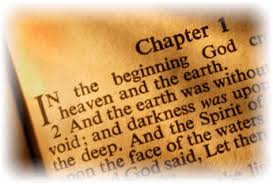Developing Godly Character Pt 9: Confessions of an Ungrateful Brat
People who have known me a long time won’t be shocked by this post. Whenever I uncover something truly wretched about myself I like to use it as a way to encourage and edify others. While some may see it as a rebuke, I don’t, because learning the truth about ourselves is a gift and an opportunity for truth and deeper relationship and greater fruit in our lives.
.
Over the weekend I came across a series of teachings offered by Ryan White about honor and shame and the patron-client relationship that is found throughout the scriptures, something I had never given any thought to. In his exposition on the historical concept of the grace relationship, where gifts are freely given by a greater being and reciprocated by the lesser, resulting in deeper levels of relationship and intimacy and honor, I realized how short I fell in this area.
.
When someone gives us a gift, the proper response springs out of a deep sense of gratitude. It is not acceptable to simply accept the gift and move on without acknowledging it. It is not acceptable among friends and so it is certainly not acceptable when the giver of the gift is the God of the universe, YHVH Elohim. Receiving a gift from the Creator is an incredible privilege — be it the breath in our lungs, our daily bread, a paycheck, rain in season, or the gifts that we would call miracles. He gives these things to us, they were created by Him and He gives them in season, and it is fitting to be grateful and reciprocate with our love, demonstrated through worship and obedience and public recognition.
.
Gifts have always made me uncomfortable, and I never knew why. I mean, screamingly uncomfortable. Want to pull my hair out uncomfortable. I have never known how to respond. Indeed, I have even been afraid of responding.
.
You know what? That is ingratitude — I am so uncomfortable that I allow that discomfort to overshadow the gift and the honor due the person who gave me the gift. The proper response is to honor the giver, they deserve to be honored and recognized for the gift. There is an ancient concept concerning gifts — that we should never accept a gift that it would pain us to reciprocate, and that is a stunning truth. If a gift comes with strings attached, let them pull on those strings and have it back. We should not be eager to accept gifts from just anyone.
.
God’s gifts also come with strings attached. His gifts are tied into the concept of relationship — and if all we ever do is take and take and take and take and never give back to Him, never honor Him, never obey Him then we are in effect shallowing out the relationship. But if He gives and we reciprocate, then He gives again and we reciprocate, and on and on — isn’t that the very nature of our healthy earthly relationships? All relationships, except with the smallest of children, involve a give and take cycle and as children grow it becomes less and less one-sided.
.
But I allowed Pentecostalism to twist my sense of gratitude. You know, the prosperity gospel, that idea that we always have to be looking to the next gift, never satisfied, never truly full of joy because we don’t have it all yet. I have what I need, but I am not rich so I have to strive in prayer because what I have isn’t good enough. I call it the “Gimme Gospel.” Gimme this and Gimme that! In my case, it revolved around my son Andrew who was born with multiple birth defects. We have received healings, oh my goodness, praise YHVH we have seen the kinds of healings people only dream of — the things my child can do that other children with spina bifida can’t, walking, running, jumping, skipping, he even rides a longboard! But — I had my eyes so firmly and unwaveringly on the 100% healing of his body that everything else seemed like a failure. I had my eyes so firmly on MY end goal that I had very little appreciation for the reality that so much has been given to us and to our son. Having my eyes on what I wanted and being unwilling to settle for “less” was stealing the gratitude I owed God because of the amazingly wonderful gifts I had already been given. Seeing partial healings as “less” obscured the fact that I had been given “more.” Yes, I would praise Him in the assembly when He would do something amazing, but I was embarrassed because Andrew was not “100%.” And that embarrassment would turn to ingratitude. I was no longer grateful for what I had, but focused on what I did not have and already grumbling for it. And frankly, there are a whole lot of people out there only too happy to help you become ungrateful — you know, the people who whenever you praise God for a gift, they try to steal His glory because the gift wasn’t as good as they think it should have been, or they simply do not want to acknowledge God working to bless your life? But that is blasphemy, anything we do to diminish the honor of God.
.
You see, there is a big difference between being thrilled with the gifts of God, yet hoping and asking for more because His gifts are all good, and being dissatisfied because the gift was not enough, therefore demanding more. It’s like praying for a raise, getting one and then being angry because it wasn’t big enough for you. The limited nature of His gifts can be a gift in and of themselves because they reveal our hearts. They reveal either our gratitude and joy or our ingratitude and resentment.
.
And so here I am, confessing my ingratitude. I have been a spoiled brat, wallowing in blessings like a pig in mud, with hardly a thought in my head as to truly how much I have been given and without a care as to how much honor He deserves daily from me, moment by moment, for all of it.
.
I have spent my life wondering why I have so little peace and why I have never possessed joy. And once I figured this out, I started feeling peace in this cycle of grace. He has given to me out of the bounty of His love and generosity, and I render to Him what belongs to Him, my trust, my obedience, and all else I can do to protect and promote His honor in the eyes of the world. My prayers now no longer focus on what I do not have, the healings and provision I want for my son and others, but on the honor He is due for all He has provided already. My prayers are becoming worship, instead of petitions. And I can feel a relationship of trust and appreciation deepening within me.




